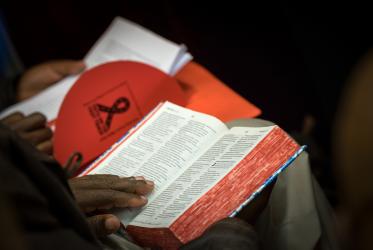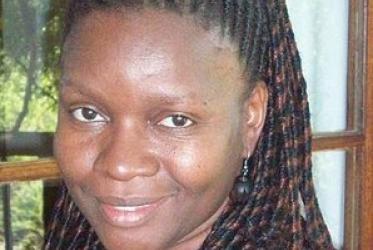Displaying 1 - 15 of 15
WCC to ring with children’s voices across the world
16 November 2018
In Zambia, foreign investors complicate “economy of life”
06 September 2017
Faith communities explore concrete climate action at COP22
10 November 2016
Bible study gives hope as youth reflect on HIV
02 November 2016
Honest talk blossoms between youth, theologians in Cote d’Ivoire
14 September 2016
WCC conference explores ecological injustice in Uganda
21 April 2016
Pilgrimage of justice and peace gives vision for WCC programmes
22 November 2014
Churches engage in development dialogue on Africa
06 March 2013
Living with God in the context of HIV and AIDS
27 February 2013











